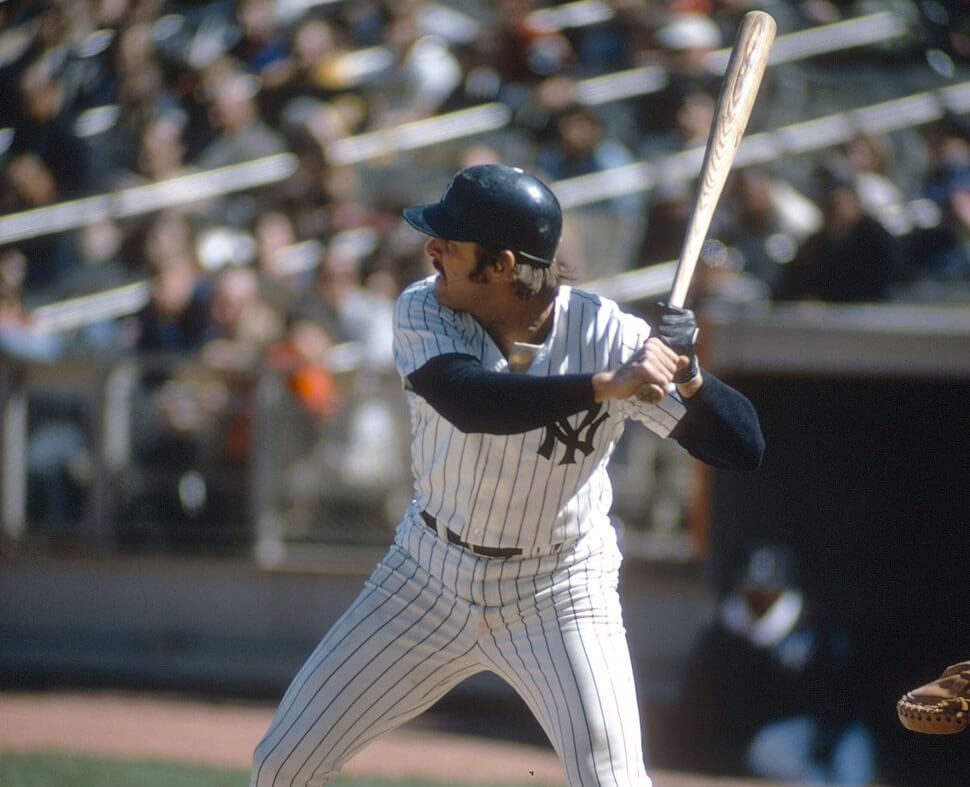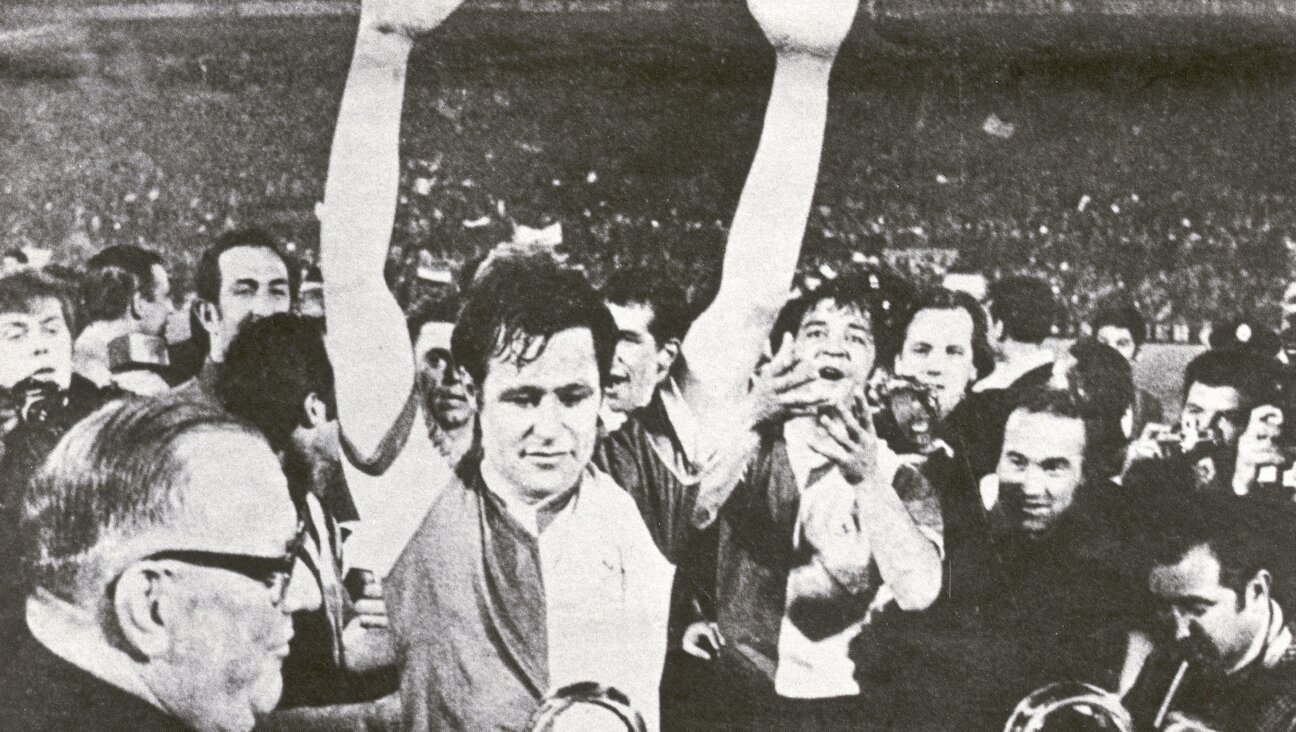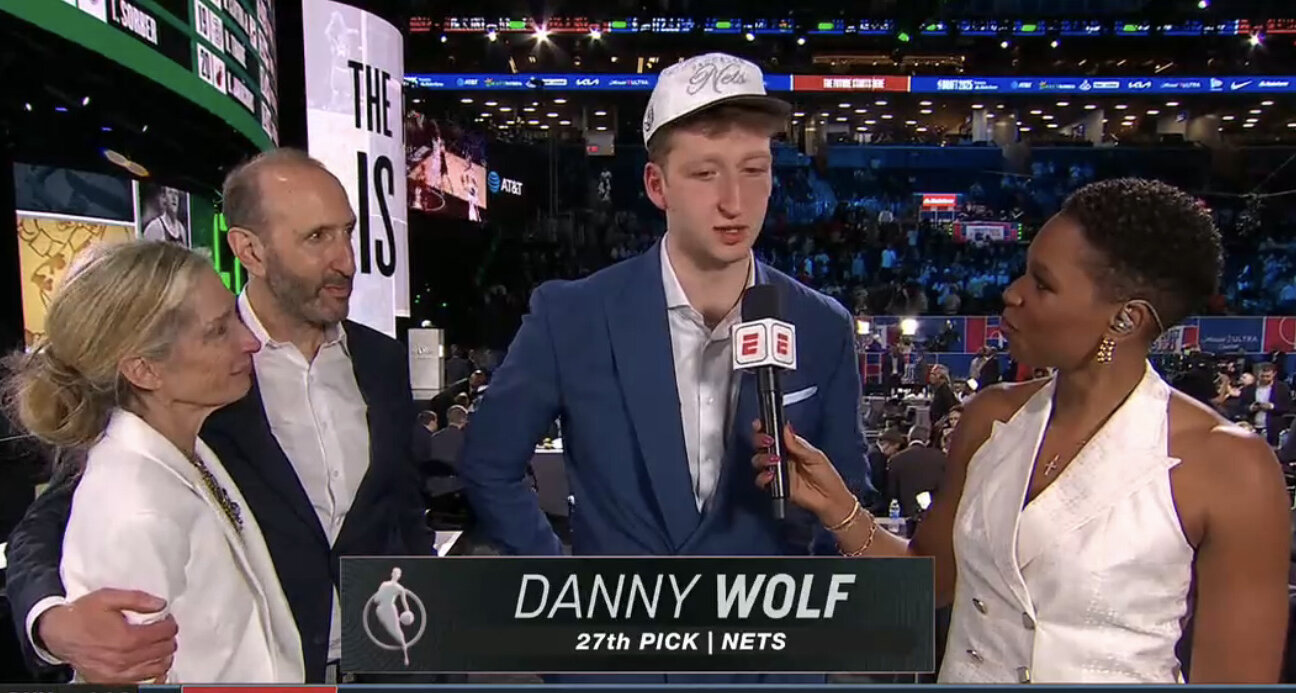50 years ago, a Yankee became the first designated hitter — and ‘designated Hebrew’
In the major leagues, Ron Blomberg embraced his Jewishness, and earned a place in baseball history

Ron Blomberg was drafted by the Yankees in 1967. Photo by Getty Images
A half-century ago, a young Jewish player on the New York Yankees made history for not doing something on the baseball diamond. After taking an at-bat in the top of the first inning against the Boston Red Sox at Fenway Park, Ron Blomberg stayed on the bench as his glove-toting teammates took the field.
Blomberg had become major league baseball’s first designated hitter. Or, Designated Hebrew, as he dubbed it in his memoir, Designated Hebrew: The Ron Blomberg Story.
Baseball, he wrote, brought his Jewishness into relief, in that he didn’t identify strongly as a Jew until he got drafted by the Yankees and moved north, where New York Jews made him one of their own. The designated hitter rule assured his place in baseball history.
In 1973, the American League added the designated hitter — originally called the designated pinch-hitter, or DPH — to boost offense at a time of declining attendance. Because a team’s pitcher is almost always the worst hitter in the lineup, the new rule allowed a team to designate another player to bat in his place.
Although it’s long been an accepted part of the game in the American League, and the National League finally adopted it last year, back in the early ’70s, the DH caused a stir, with one pitcher griping that it robbed “the pitcher of his manhood.”
Blomberg, who is now 74, wasn’t initially impressed either.
“When I first heard about the new rule, I thought it was a big joke,” he wrote.
But after he pulled a hamstring at the end of spring training in 1973, the DH gave Blomberg a chance to contribute. The team slotted him in that role so he wouldn’t have to play the field. That injury made him an unlikely player to become the sport’s first designated hitter at just 24 years old on opening day, April 6. Teams frequently DH older players who might not have the skills to play in the field anymore. Boston’s DH that afternoon was 35-year-old Orlando Cepeda, in his second-to-last season.

Hitting sixth in New York’s lineup, between Graig Nettles and Felipe Alou, Blomberg came to bat in the first inning with the bases loaded. Perhaps fittingly for a position where less is required, he walked, driving in a run to give the Yankees a 1-0 lead. After the Red Sox finally got the third out with Blomberg at third base, he found that old habits die hard.
“When the inning ended, I was waiting for somebody to run out there and throw me my glove,” he recalled in his memoir. “Dick Howser, our third-base coach, told me to come sit next to him on the bench. I was so used to playing in the field that I had forgotten that as the designated hitter I was going to spend a lot of time on the bench.”
On that cold and windy New England afternoon, Blomberg went into the clubhouse and enjoyed some hot chocolate while listening to the game on the radio.
He finished 1-for-3 in a game the Yankees lost 15-5, despite jumping out to a 3-0 lead. Blomberg’s DH counterpart, Cepeda, went 0-for-6. There was another historic debut that day — the first Yankees game under the ownership of George Steinbrenner.
“One at-bat changed the game — and my life — forever,” Blomberg wrote. “Some say the designated hitter rule screwed up the game, but I’d rather be associated with a controversial rule than be forgotten.”
Forty reporters were at his locker after the game. “That was the first time I sensed that I was part of history,” he observed. “Up until then, the significance of being major league baseball’s first DH was totally lost on me.”
‘The Yiddish Yankee’
Although a young player, Blomberg had already made a big impact in New York with the city’s Jewish fans — and with some high-profile Jews outside the Big Apple. But first he had to overcome some stereotypical expectations for Jewish boys.
“When I was a kid, most of my friends did not believe that a Jewish player could make it in the major leagues,” he wrote in a chapter of his memoir called “The Yiddish Yankee.”
“Sandy Koufax and Hank Greenberg had done it, but they were viewed as exceptions. My friends thought I was crazy for wanting to be a baseball player,” and most of his Jewish friends planned to become doctors or lawyers.
The Yankees made him the No. 1 overall draft pick in 1967, and signed him to a $90,000 contract (about $810,000 in today’s dollars), after Blomberg hit .472 his last year of high school. “I feel that Ronnie is the best pro prospect to come around in several years,” gushed Yankees general manager Lee MacPhail.
Blomberg, who is from Atlanta, wrote that growing up in the South, he didn’t have much of a Jewish identity until he came to New York, where Jewish fans made him feel welcome on and off the field: “I felt as if I were one of the chosen, simply because of how I was viewed and treated by the city’s Jewish population … Every Jewish mother in the world wanted to introduce me to her daughter, and each letter included a photograph.”
He recalled eating at a Jewish deli called Roxy, and seeing customers reading Jewish newspapers. (“I had never even seen a Jewish paper before arriving in the Bronx.”) And he wrote of meeting Koufax and Hank Greenberg, and receiving gifts from Moshe Dayan and Golda Meir.
After appearing in a handful of major league games in 1969, Blomberg had a breakout rookie season in ’71, hitting .322 and slugging .477. But what stands out from that year was a meaningless game against the Cleveland Indians in late September on the eve of Rosh Hashanah. The Yankees were in fourth place and way out of contention, and as the sun sank in the sky, there was no end in sight of the game, which was tied 2-2 in the 9th inning.
With the announced crowd of 9,177 dwindling, Blomberg came up with runners on first and third and one out. He hit a ball over the center fielder’s head to win the game — just in the nick of time.
“If the count had been 3-2 and the sun went down, I would have left for temple,” a jubilant Blomberg shouted in the locker room.
“Wow. What a quote,” wrote Gerald Eskenazi, the Jewish New York Times reporter covering that game, in a retrospective essay last year. “So he would have left the game to go to services? All the writers were scribbling on their notepads, and Blomberg looked as if he had just capped a World Series game. He was ecstatic. He was at that moment a Jewish ballplayer who had just won the right to go home and celebrate one of the most important holidays of his religion. I shared his excitement.”
Another money quote from Blomberg after that game: “It’s my day! Why do you think I did it? I knew sundown was coming.”
The headline on the Times story the next day across the top of the page blared, “Blomberg Gives Yanks 3-2 Victory in Ninth and a Happy New Year.”
And then the perfect subhead: “Sundown Kid hits deadline single.”






















